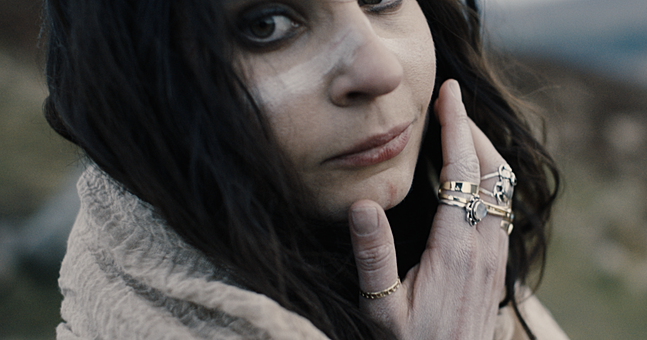Irish-Palestinian singer-songwriter Róisín El Cherif looks ahead to her headline show at the Button Factory…
Singer-songwriter Róisín El Cherif is the product of the rich cultures of both Ireland and Palestine, with her roots meeting to create a unique window into two complex histories.
“There is this constant anxiety about belonging,” she reflects on her double heritage now, in the days leading up to her highly anticipated headline show at the Button Factory. “And I stand firm that I can belong to both, and that mixed heritage people are the bridge.
“I spent the first part of my life in the Arabic world. So I was kind of brought up as an international kid until I was 16, when we came to Ireland.
„But I was raised by an Irish woman,” she adds, “and becoming Irish was the missing piece. It’s just a shame that the other missing piece – being Palestinian — can’t be explored as much, because of what’s happened to Palestine.”
Still, through her Irish roots, El Cherif was able to deepen her connection with Palestine.
“In Ireland, we have a long history of suffering, and we’re very lucky that we live in today’s world, where our forefathers did a lot of the fighting so we can be free. We have a shared history with any colonised people.”
Celebrating existing bridges of connections, and building new ones, is something El Cherif has been attempting to do with her art since the release of her first single, ‘Kerosene’, back in 2016. But this emphasis will be especially to the fore at her upcoming gig. A multi-disciplinary performance at the crossroads of music, theatre and cinema, it’s been designed as a larger, more ambitious version of the show she presented at Dublin Fringe last summer.
“I suppose the Dublin Fringe show was the first experiment – it was my first multi-disciplinary performance and it was basically all about Palestine.
“We just kept it quite simple – it was music and films. Whereas for this, we’re bringing in the magic element of the cailleach and Irish folklore and mythology. We’re going full hog with it. Myself and the band of girls are basically in full banshee mode – as you do, when the world’s falling apart,” El Cherif jokes. “I love Irish mythology. For me it was always my happy place. Anything fantasy, anything magic is where I go to hide. I just find there’s power in the mystery. But the themes of death and grief are also here: we’re trying to make sense of it – we’re trying to honour it, because it’s horrific.”
One of the ways the performance attempts to honour Palestinian grief and culture at large is through the use of various film extracts. One of them is the ‘80s Lebanese film Leila and The Wolves, directed by Heiny Srour.
“All her films are fascinating,“ El Cherif says. „It’s the woman’s perspective of the Middle East – she’s broken down so many doors and barriers. She brings in the world of memories and what has been before to explain what is happening now and what is coming.”
Art and music, El Cherif insists, “reach people more than an essay of politics.“
„When I started to sing in Arabic, for a lot of listeners, this was the first time they’d heard Arabic that’s not in a format related to fear,“ she resumes. „I had people, at some of the gigs – Irish people — in pieces, coming up to me. They had no idea what I was saying, but it moved them.”
“I’m not an academic,” the musician concludes. “I’m not an activist. I’m not in the world of politics. I went into the world of art and music and film – and I went there because I want to tell stories.”
Róisín El Cherif plays The Button Factory this Wednesday, April 30.
Róisín El Cherif: "I went into the world of art and music and film – and I went there because I want to tell stories" – Hotpress
RELATED ARTICLES
